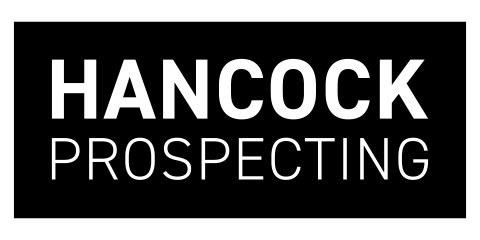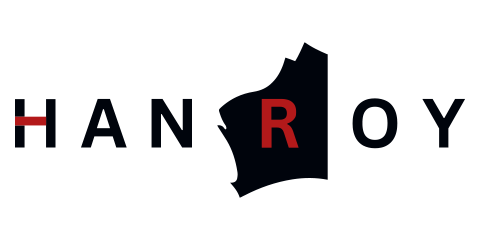
Article by Geoff Chambers, courtesy of The Australian.
29.10.2025
Jim Chalmers is accelerating government plans to unlock billions of dollars from Australia’s $4.3 trillion superannuation system to underwrite Labor’s policy priorities through an overhaul of rules that will remove “unnecessary obstacles to investment”.
Addressing an Australian Chamber of Commerce and Industry dinner on Wednesday after inflation rose above market expectations to an annual 3.2 per cent, the Treasurer said new investment was needed to boost productivity and growth, amid rising geopolitical tensions and “complex transitions” in energy and technology.
As the government looks to limit record public spending and subsidies, Dr Chalmers confirmed he was pushing ahead with superannuation performance test changes to ensure the nation’s retirement savings were available to invest in key areas including housing and clean energy.
Dr Chalmers, who told business leaders “our future growth depends on your strength, resilience and ingenuity”, said Treasury officials had been instructed to progress consultation with stakeholders on an overhaul of the superannuation performance test to remove unnecessary obstacles to investment.
Australia, which boasts the fourth-largest pension pool of capital in the world behind the US, Britain and Canada, is expected to become the second biggest by the end of the decade.
With local super funds investing record levels overseas and on track to pump $US1.4 trillion ($2.1 trillion) into America, the government is eyeing reforms across the board to make it easier for domestic and overseas retirement funds to pour more money into Australia.
Changes to the superannuation performance test, which has progressed to a new stage of consultation, would work in tandem with the government’s proposed overhaul of environmental laws, pausing the construction code and $900m national productivity fund to streamline approvals and lower investment barriers.
As higher inflation threatens to end the cycle of rate cuts, unemployment rises and economic growth remains flat, Dr Chalmers is under pressure to pull government levers that slash green and red tape, lower costs and induce investment.
Australian Bureau of Statistics data released on Wednesday showed inflation recorded its largest quarterly rise in more than 2½ years, with electricity prices up 23.6 per cent.
Dr Chalmers updated business chiefs on actions taken following the three-day economic reform roundtable in August, including Treasury’s new round of consultation on the superannuation performance test.
“We’ve made it clear we’re open to considering responsible changes that maintain very high standards and the super funds’ responsibilities to members. Which is why we’ll ask industry and experts for their ideas,” the Treasurer said.
Treasury would establish an industry working group to seek consensus, with the goal to “refine and strengthen the performance test to make sure it isn’t creating unnecessary obstacles to investment, particularly in key areas like housing and energy”.
“It’s about better aligning and unlocking investment that also boosts productivity, while maintaining a robust test and a primary focus on member returns,” Dr Chalmers said.
Superannuation funds have argued the performance test, which ranks annual and long-term returns against a benchmark set by the prudential regulator, discourages investment in assets that take longer to deliver returns. Industry bosses have voiced support for amendments to make it more aligned with whether a fund makes money on an investment.
Dr Chalmers has talked down major tweaks to the performance test beyond removing barriers to investment in longer-term asset classes, including housing, clean energy and private equity.
At a Super Members Council summit in Canberra on Monday, Australia’s ambassador to the US, Kevin Rudd, spruiked investment opportunities in America.
In their meeting with Donald Trump last week, Anthony Albanese and Dr Rudd emphasised the fact that Australian super funds would lift investments in the US to $US1.44 trillion by 2035.
In his ACCI speech, the Treasurer will reveal money from the national productivity fund has finally begun flowing to state and territory governments. The fund, announced last November, was set up to cut red tape, boost competition, speed up home construction and turbocharge Labor’s clean-energy agenda.
Business leaders and state governments believe the $900m allocated should be billions of dollars higher to accelerate meaningful productivity reforms.
Dr Chalmers will tell business chiefs: “We have just signed off on the first set of state and territory reforms that will be paid out as part of that fund, with more to come. This money only gets paid out when states deliver.
“The Northern Territory government will now stop unnecessary objections to commercial developments – which could pave the way for more competition in its supermarket sector. The ACT will now identify regulatory barriers to using prefabricated materials, to help fast-track housing construction. And South Australia has now nominated a suite of zoning reforms which will help businesses redevelop land without needing to get a new permit, and speed up the delivery of mixed-use zones, including 3600 new homes.
“This is not even an exhaustive list, but it gives you a really good sense of the reform we are leveraging and incentivising.
“It also makes clear that we don’t see productivity as the responsibility of one level of government, or indeed one minister or one department.”
In an interview with The Australian before the economic reform roundtable, Dr Chalmers said he was open to expanding the fund and would keep the size of it “under constant review”.
Speaking at ACCI’s business leaders summit on Wednesday, Sussan Ley focused her address on growing pressures facing small business owners.
“Ambition is the heartbeat of small business,” the Opposition Leader said. “But ambition is only realised when business owners have the confidence to employ. And that confidence is being sapped away by Labor’s workplace laws.
“The evidence of Labor’s failure is clear. Since Anthony Albanese became Prime Minister, almost 40,000 businesses have gone insolvent.
“Small businesses are being crushed by soaring energy costs, making it harder for cafés, restaurants, retailers and manufacturers to keep the lights on and the ovens running.”



